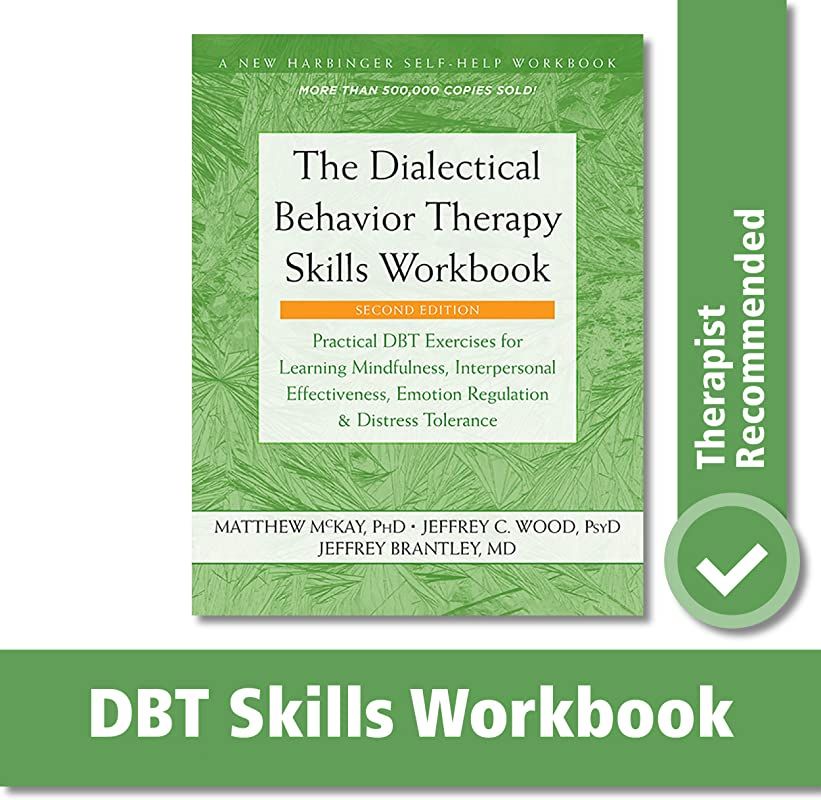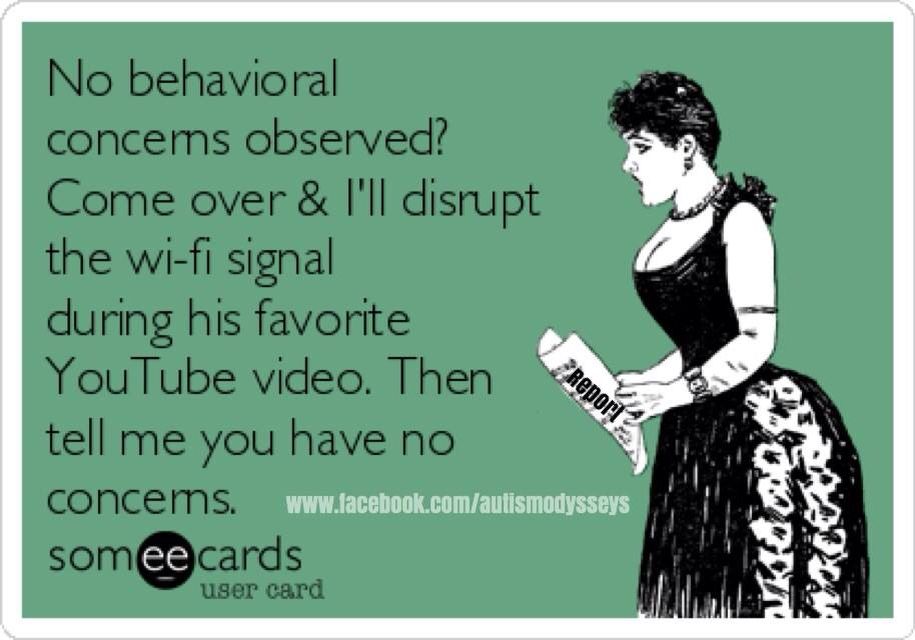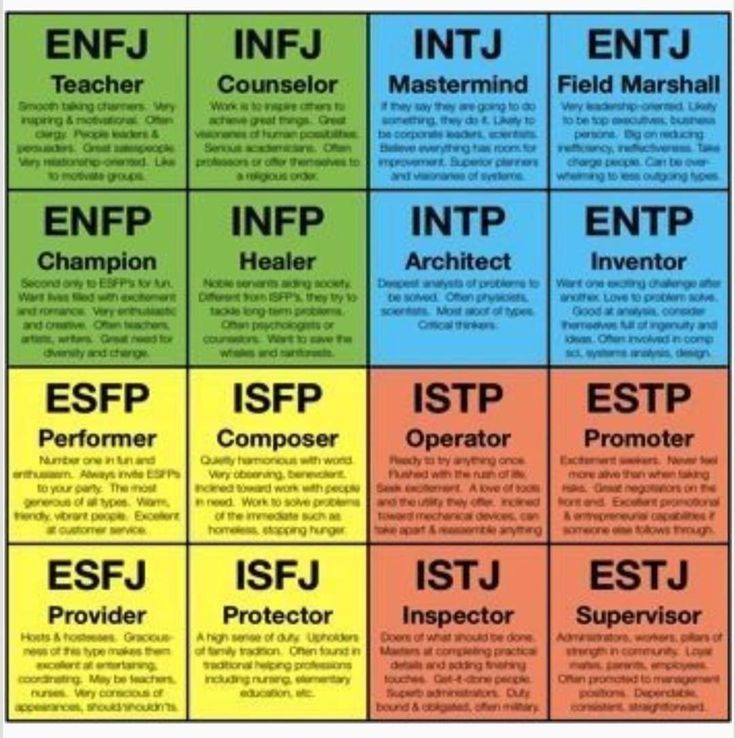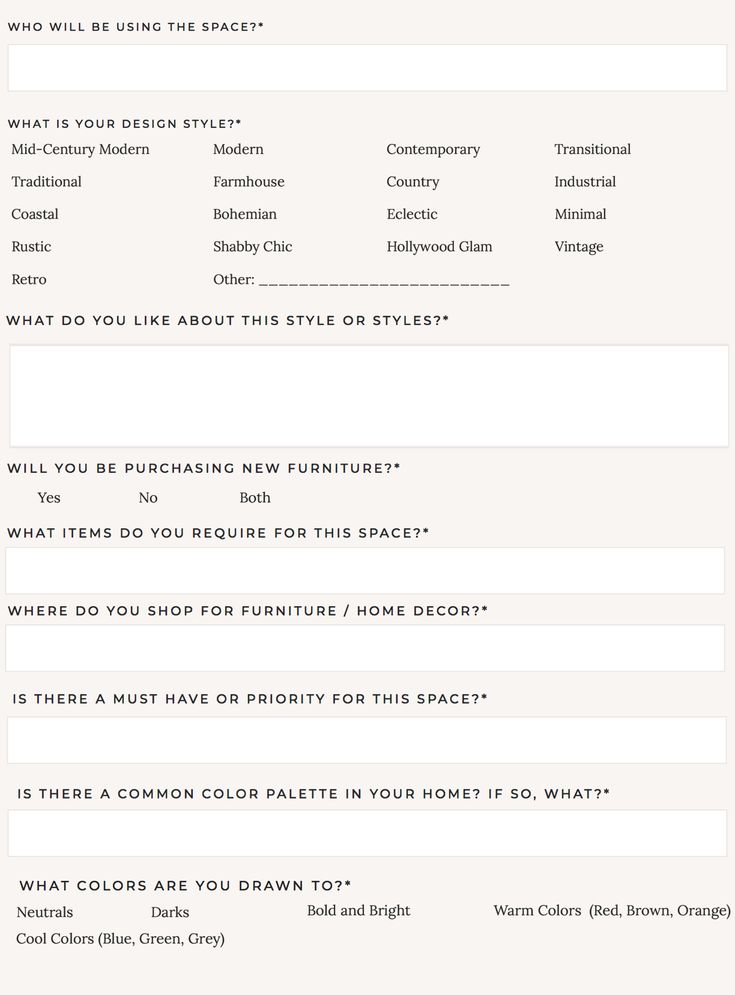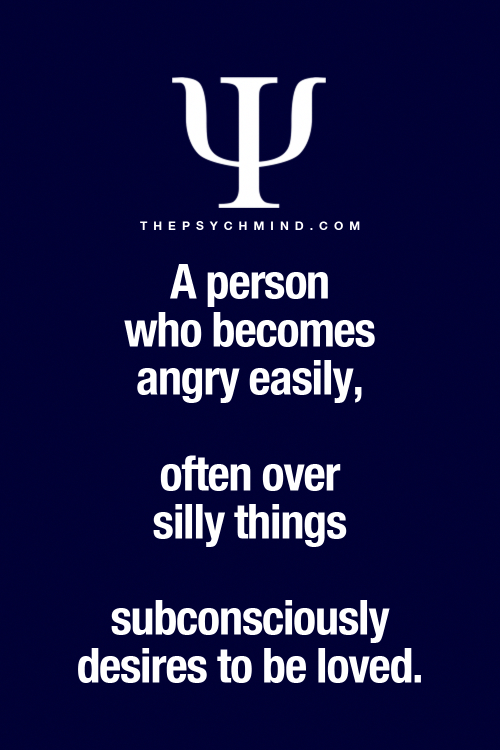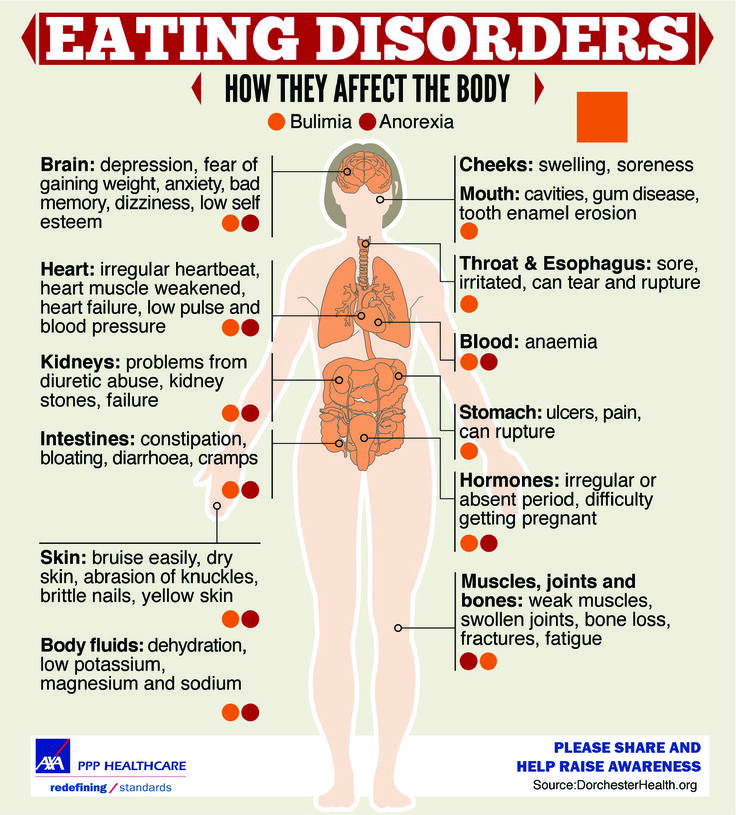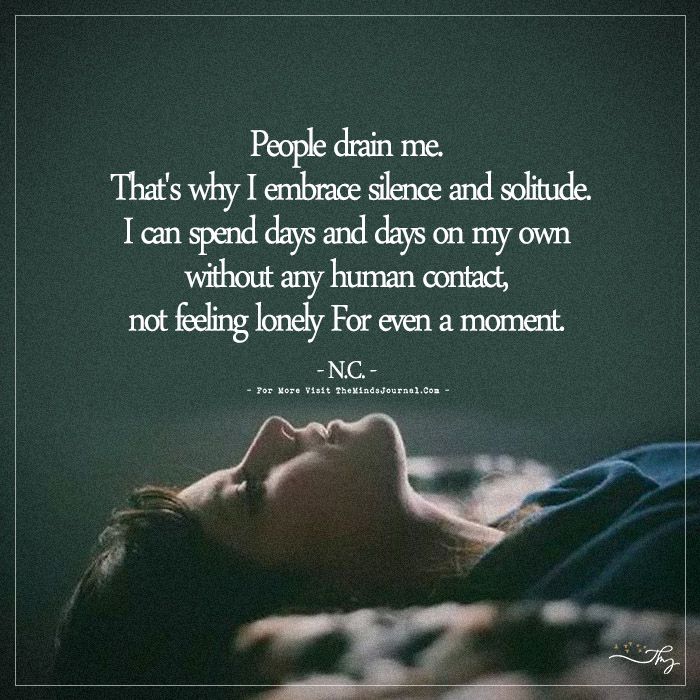Dialectical behaviour therapy self help
What It Is & Purpose
Overview
What is dialectical behavior therapy (DBT)?
Dialectical behavior therapy (DBT) is a type of talk therapy (psychotherapy). It’s based on cognitive behavioral therapy (CBT), but it’s specially adapted for people who experience emotions very intensely.
Cognitive behavioral therapy (CBT) is a type of talk therapy that helps people understand how thoughts affect emotions and behaviors.
“Dialectical” means combining opposite ideas. DBT focuses on helping people accept the reality of their lives and their behaviors, as well as helping them learn to change their lives, including their unhelpful behaviors.
Dialectical behavior therapy was developed in the 1970s by Marsha Linehan, an American psychologist.
What is dialectical behavior therapy (DBT) used for?
Dialectical behavior therapy (DBT) is especially effective for people who have difficulty managing and regulating their emotions.
DBT has proven to be effective for treating and managing a wide range of mental health conditions, including:
- Borderline personality disorder (BPD).
- Self-harm.
- Suicidal behavior.
- Post-traumatic stress disorder (PTSD).
- Substance use disorder.
- Eating disorders, specifically binge eating disorder and bulimia.
- Depression.
- Anxiety.
It’s important to note that the reason DBT has proved effective for treating these conditions is that each of these conditions is thought to be associated with issues that result from unhealthy or problematic efforts to control intense, negative emotions. Rather than depending on efforts that cause problems for the person, DBT helps people learn healthier ways to cope.
How do I find a DBT therapist?
A therapist can be a psychiatrist (a medical doctor who can prescribe medications), psychiatric nurse, psychologist, social worker or family therapist.
Finding the right therapist is often a time-consuming task, and DBT therapy isn’t any different. Try not to become discouraged. Talk to people you trust to give you a referral for a therapist who uses dialectical behavior therapy, whether it’s your primary healthcare provider or a friend or family member.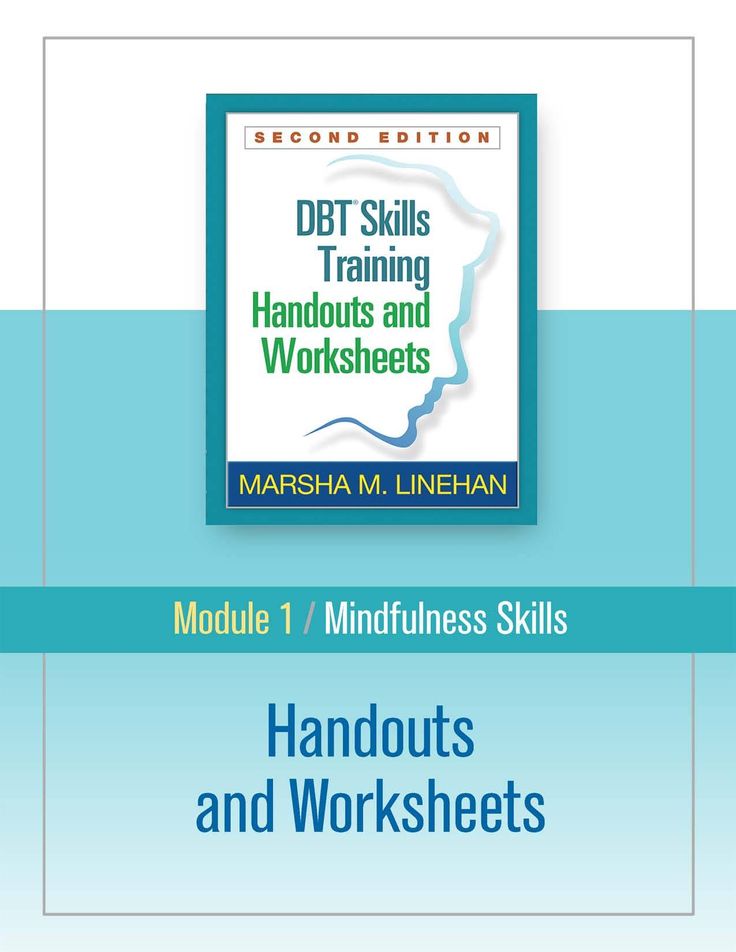
You can also search for therapists online through local and state psychological associations.
Be sure that any therapist you’re interested in seeing is a state-certified and licensed mental health professional and that they treat your area of concern (for example, eating disorders, borderline personality disorder, self-harm, etc.).
Most therapists’ websites list the conditions and problems they treat. If you have questions, call or email the therapist’s office before you choose.
It may be helpful to ask a potential DBT therapist the following questions:
- What is the nature of your training in DBT?
- Do you provide comprehensive DBT or a modification? If not comprehensive DBT, why not?
- Do you belong to a DBT consultation team?
- What’s your policy on phone calls and emails during the week?
- How much time will you initially ask me to commit to for the entire therapy process?
Procedure Details
How does dialectical behavior therapy (DBT) work?
The main goal of therapists who use dialectical behavior therapy (DBT) is to strike a balance between validation (acceptance) of who you are and your challenges and the benefits of change.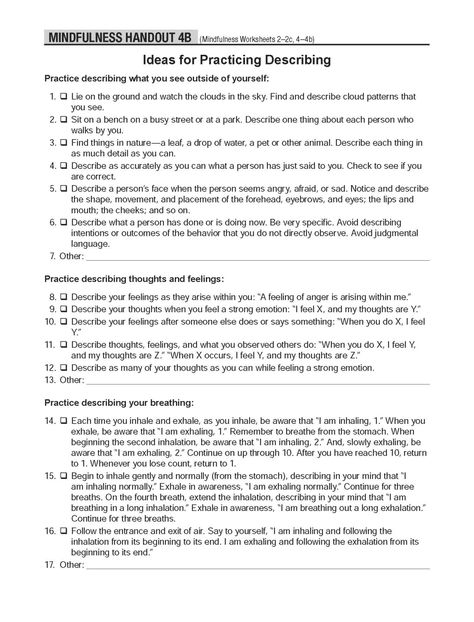 Your therapist will help you learn new skills to improve emotion regulation.
Your therapist will help you learn new skills to improve emotion regulation.
The structure of dialectical behavior therapy can vary some from therapist to therapist, but, in general, DBT involves these four types of sessions:
- DBT pre-assessment.
- Individual therapy.
- Skills training in groups.
- Telephone crisis coaching.
DBT pre-assessment
Your therapist may offer an assessment before starting DBT. They’ll determine how suitable DBT is for you by asking you questions and explaining how DBT works. If you decide that DBT is the right therapy for you, they’ll ask you to commit to the treatment and the length of treatment.
Individual DBT therapy
Individual DBT therapy involves weekly sessions with your therapist. Each session lasts about 40 minutes to 60 minutes.
Individual DBT therapy sessions have the following goals:
- To help keep you safe by reducing suicidal and self-harming behaviors, if applicable.

- To limit behaviors that get in the way of productive therapy.
- To help you reach your goals and improve your quality of life by addressing what’s blocking your progress, such as mental health conditions or relationship issues.
- To help you learn new skills to replace unhelpful behaviors.
Your therapist will likely ask you to keep a diary to track your emotions and actions and to look for patterns of behavior. You’ll bring this diary with you to your sessions so you and your therapist can decide what to work on for each session.
DBT skills training in groups
In these sessions, your therapist will teach you skills in a group setting. This isn’t to be confused with group therapy, in which you discuss your problems with others. Think of it more like a teaching and learning session in a classroom setting.
DBT skills aim to help enhance your capabilities in day-to-day life. The four skills your therapist will teach include:
- Mindfulness: This is the practice of being fully aware and focused in the present instead of worrying about the past or future.

- Distress tolerance: This involves understanding and managing your emotions in difficult or stressful situations without responding with harmful behaviors.
- Interpersonal effectiveness: This means understanding how to ask for what you want and need and setting boundaries while maintaining respect for yourself and others.
- Emotion regulation: This means understanding, being more aware of and having more control over your emotions.
Telephone crisis coaching
DBT often involves telephone crisis coaching to support you in your daily life. This means you can call your therapist at certain times for support between sessions.
Examples of when you may need to call your therapist include:
- When you need help with an immediate crisis, such as wanting to self-harm.
- When you’re trying to use the DBT skills you learned but want some advice on how to do it.
However, your therapist will set clear boundaries about when you can call them, such as during an agreed-upon range of time during the day.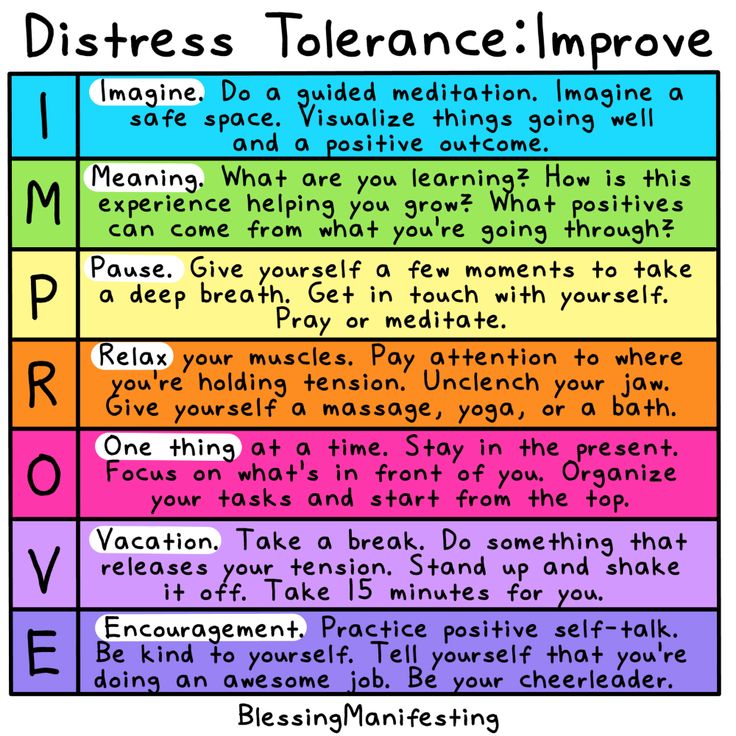
Crisis coaching functions on an as-needed basis. The calls are usually brief, and they shouldn’t replace the work of individual or group sessions.
Risks / Benefits
What are the benefits and risks of dialectical behavior therapy (DBT)?
Dialectical behavior therapy (DBT) has been proven to help people with their mental health conditions in several studies. For people with borderline personality disorder, in particular, DBT results in:
- Less self-harm behavior and anger.
- Fewer days of inpatient hospitalization.
- Less drug and alcohol misuse.
- Improved depressive symptoms.
However, DBT isn’t for everyone, and it can be very difficult. DBT is more likely to work for you if you:
- Are committed to making positive changes.
- Are ready to fully commit to therapy and do homework assignments.
- Are ready to focus mostly on your present and future, rather than your past.
- Feel able to do some sessions in a group with others.
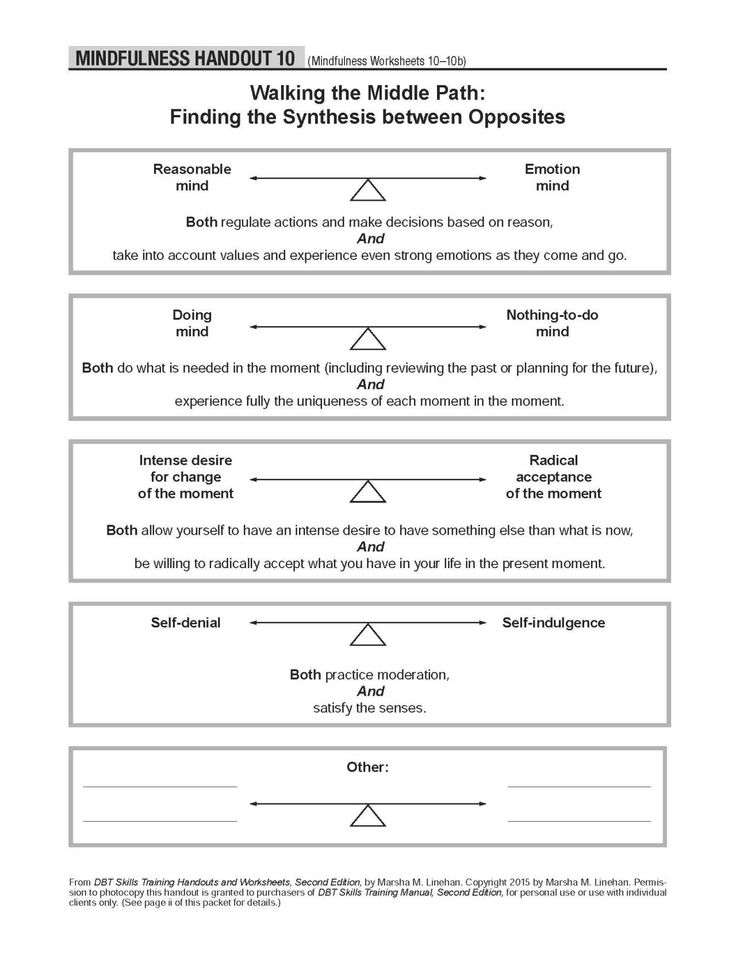
Recovery and Outlook
How long will I need dialectical behavior therapy?
Dialectical behavior therapy (DBT) usually takes at least six months to a year. However, each person is unique, and mental health conditions are complex. You shouldn’t expect to be completely free of symptoms or no longer have problematic behaviors after one year of DBT.
Many therapists believe that the treatment for borderline personality disorder, in particular, can often take several years.
Try not to get discouraged by how long it may take to be able to better manage your emotions and have a better quality of life. The important thing is that you’re seeking help. Any progress is good progress.
When to Call the Doctor
When should I see my healthcare provider or therapist while doing DBT?
It’s important to go to all of your scheduled individual DBT therapy sessions and group skill training sessions.
If you’re experiencing a crisis, such as feeling suicidal, and can call your therapist, do so.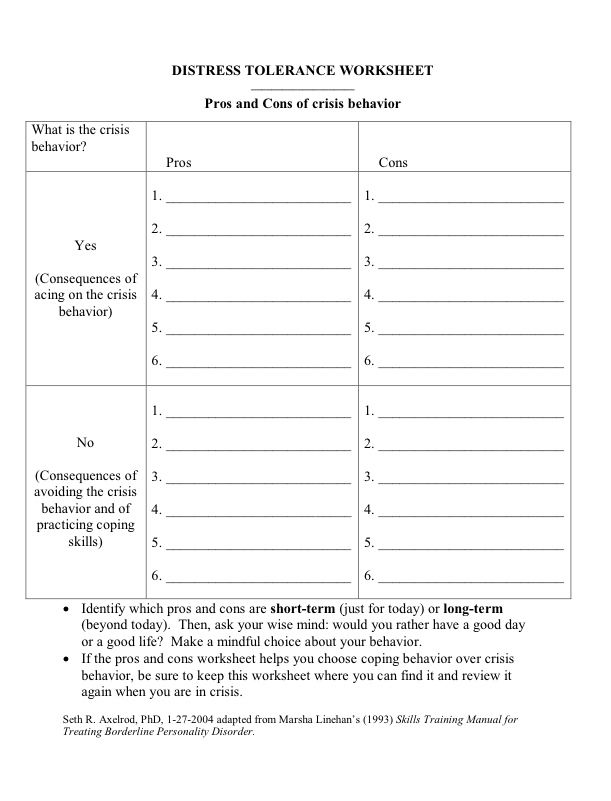
If your therapist is unavailable, call the National Suicide Prevention Lifeline at 1.800.273.8255. Someone will be available to talk with you 24 hours a day, seven days a week. You can also call 911 or go to the nearest emergency room.
A note from Cleveland Clinic
Dialectical behavior therapy (DBT) is an effective treatment to help people who experience very intense, negative emotions. Although it may be difficult and time-consuming to find the right DBT therapist for you, it’s important to keep trying. The sooner you can start therapy — and stay committed to it — the sooner you’ll have an improved quality of life.
DBT Self-Help — Amanda L. Smith, LCSW
Are you ready to take the steps to change your life for the better?
Dialectical behavior therapy (or DBT) can help you improve your life by learning the skills that have helped countless people all of the world. I want for you to believe that life can be easier and that you can take control of your depression, anxiety, disruptive thoughts, self-sabotaging behaviors, and other symptoms that may be interfering with your ability to have healthier relationships.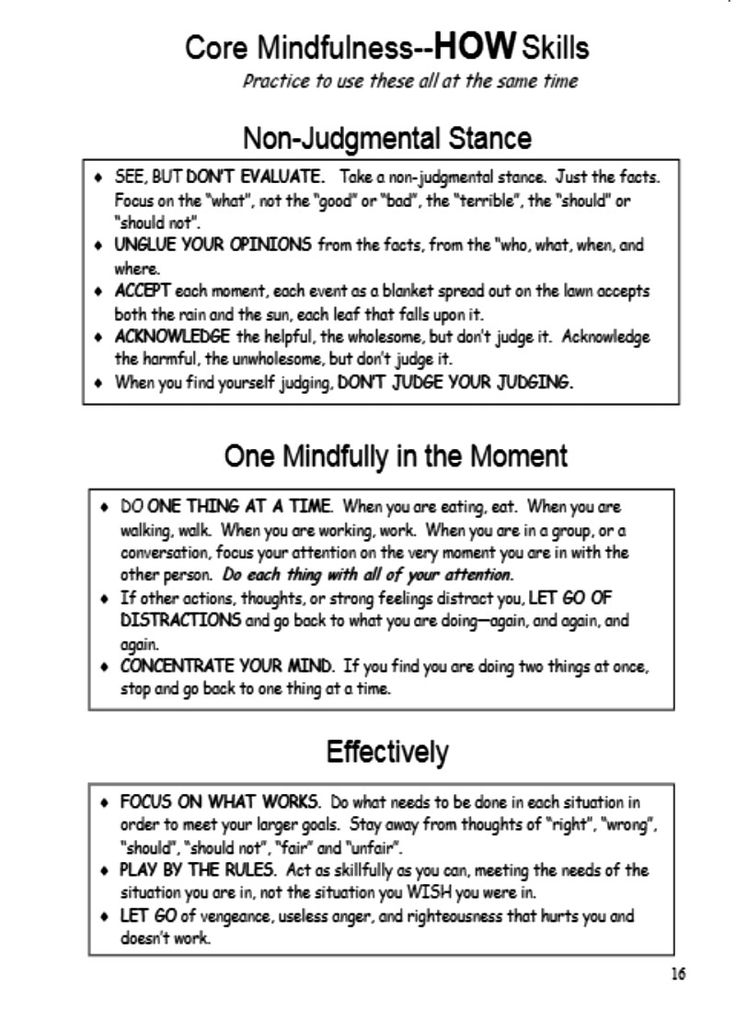
It started as a favor.
I guess lots of things – little things that make a difference – start small.
Anyway, it was 2011 and a treatment consultation client was in a bind: She was on a waiting list for a dialectical behavior therapy (DBT) program, but wanted to start learning and using the skills right away.
So I sent her an email once a day – something short, useful and validating – so she could start learning a few DBT skills while she was waiting.
I didn’t know then what I know now: Sometimes doing a favor for someone can end up helping thousands of people over many years.
Fast-Forward To 2023Eleven years later, that simple idea for my client has turned into My Dialectical Life.
Oh, it’s still a daily email. But it’s also a lot more. Today, MDL is:
A proven tool that helps hundreds of people embrace their skills – and, in doing so, embrace a life worth living – every day
A sense of community and shared purpose for those new to DBT as well as those who have been using their skills for years
An important day-starter ritual for anyone who wants to be more proactive and thoughtful in their self-care practice
Two live educational webinars each month about ideas and topics that can help you be your very best
Who Am I?
Hello! My name is Amanda and I have been intensively trained in Dialectical Behavior Therapy (DBT) through The Linehan Institute's Behavioral Tech.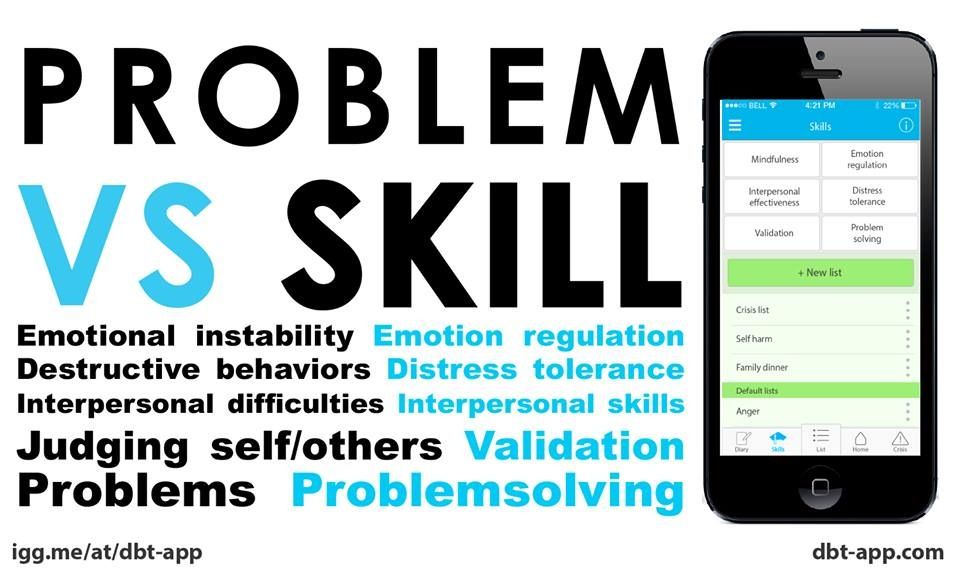
I'm also the author of the DBT Wellness Planner: 365 Days of Healthy Living for Your Body, Mind, and Spirit. I write about Dialectical Behavior Therapy (DBT) every single day.
What You Know, What You’ll Learn
DBT can be a life-changing therapy. Learning and using skills to improve relationships and increase your health and happiness may be one of the smartest decisions you ever make.
If you’ve made it this far, you know these things. And you know you want to make progress every day, whether you’re just starting out on your DBT journey or rocking skills you’ve felt solid about for years.
Tiny steps of progress every day is what My Dialectical Life is all about. Each day you’ll receive an email that includes:
a DBT skill to use that day
tips for making the most of your skill through real-world examples
encouragement and support to help you create your own life worth living
Across eleven years and thousands of subscribers, this simple, daily reinforcement has changed lives.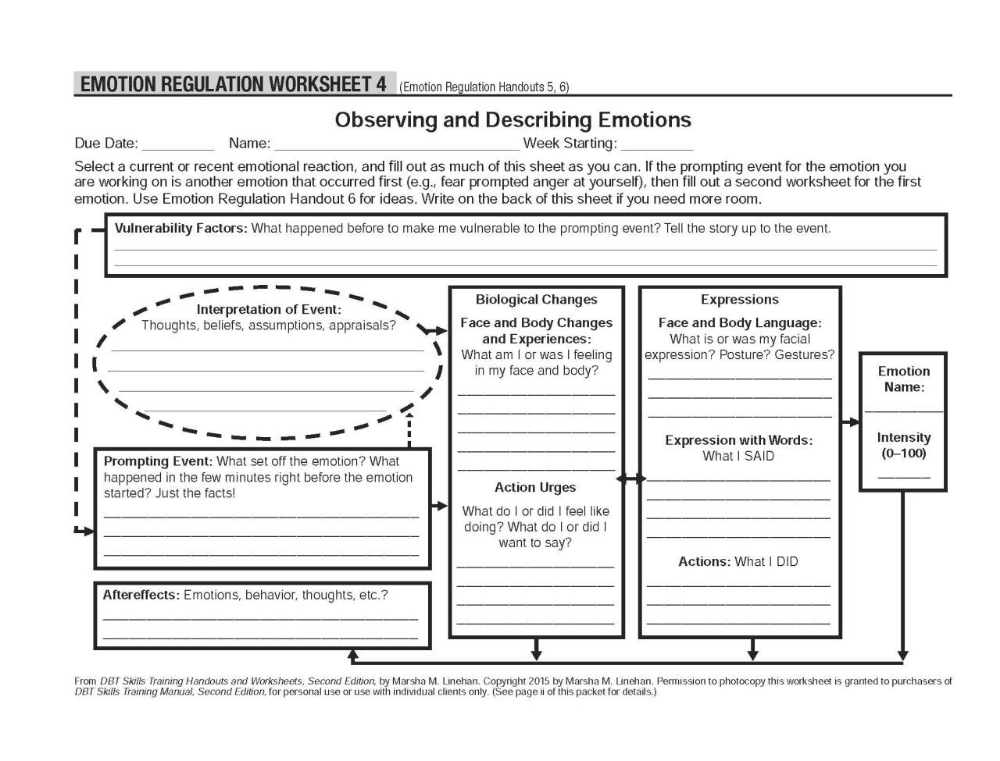 But don’t take my word for it – read what MDL subscribers have to say:
But don’t take my word for it – read what MDL subscribers have to say:
I love MDL. —SH, England
Remember that God uses you to bless people via your My Dialectical Life emails. —MP, Arizona
This is just what I needed to read this morning. Thank you! —TB, Brazil
I’d be lost without a daily reminder to use these skills. —ET, Italy
I’m so glad that our family found you. —BB, Maine
You’ve Got Questions, I’ve Got Answers
Q: What is DBT?
A: Dialectical behavior therapy is an evidence-based treatment designed to help people take control of their emotions and behaviors. DBT was developed by Marsha Linehan, PhD and you can read more about how DBT helps people by clicking here.
Q: Will DBT help me?
A: Since its creation in the late 1980s, DBT has helped people all over the world create healthier and happier lives. My hope is that by subscribing to My Dialectical Life, you’ll find lots of practical ideas you can use to help yourself feel just a little bit better—starting today.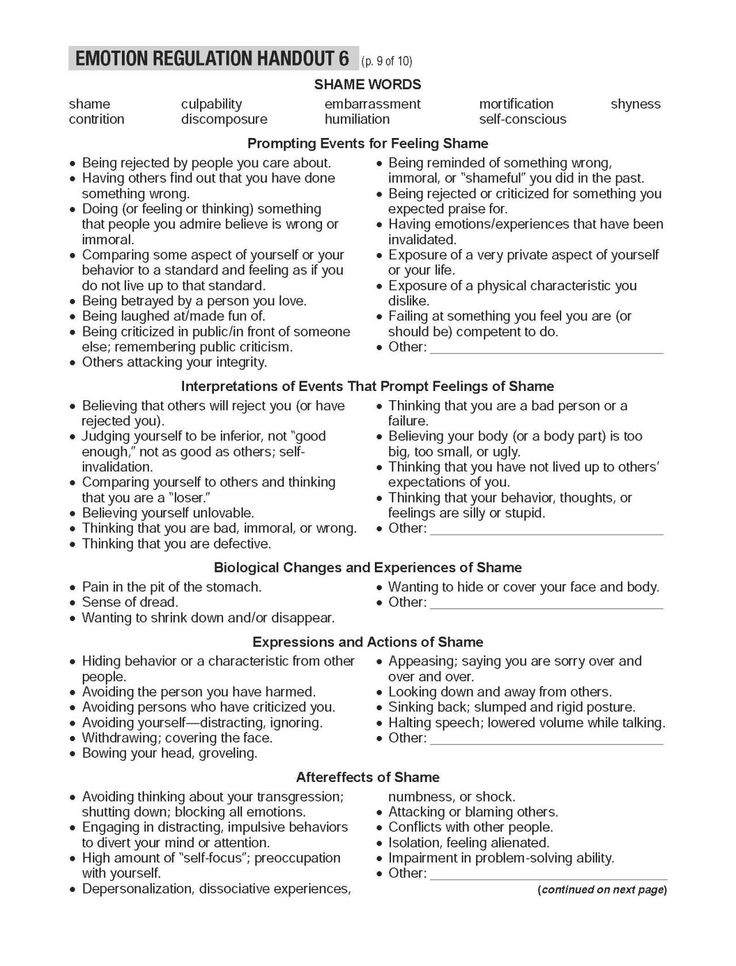
Like any other tool, however, the more you put into it, the more you’ll get out of it. I believe that taking small, daily steps to help yourself will yield results for years to come. DBT will get you pointed in the right direction!
Q: Do you have any success stories?
A: Yes! Please check out this collection of inspiring DBT success stories.
Q: I can’t find a DBT therapist in my area. Can I teach myself the skills?
A: While DBT is not a quick fix, individuals who are highly-motivated and are ready to commit to using the skills daily for at least six months, I believe the answer is often YES.
I strongly recommend that beginners also read—or listen to—books about mindfulness and dialectical behavior therapy.
Q: What if I’m already working with a DBT therapist?
A: That’s perfectly okay. As a DBT therapist, I subscribe my own clients to My Dialectical Life because I want them to have plenty of ideas for practicing these skills each day.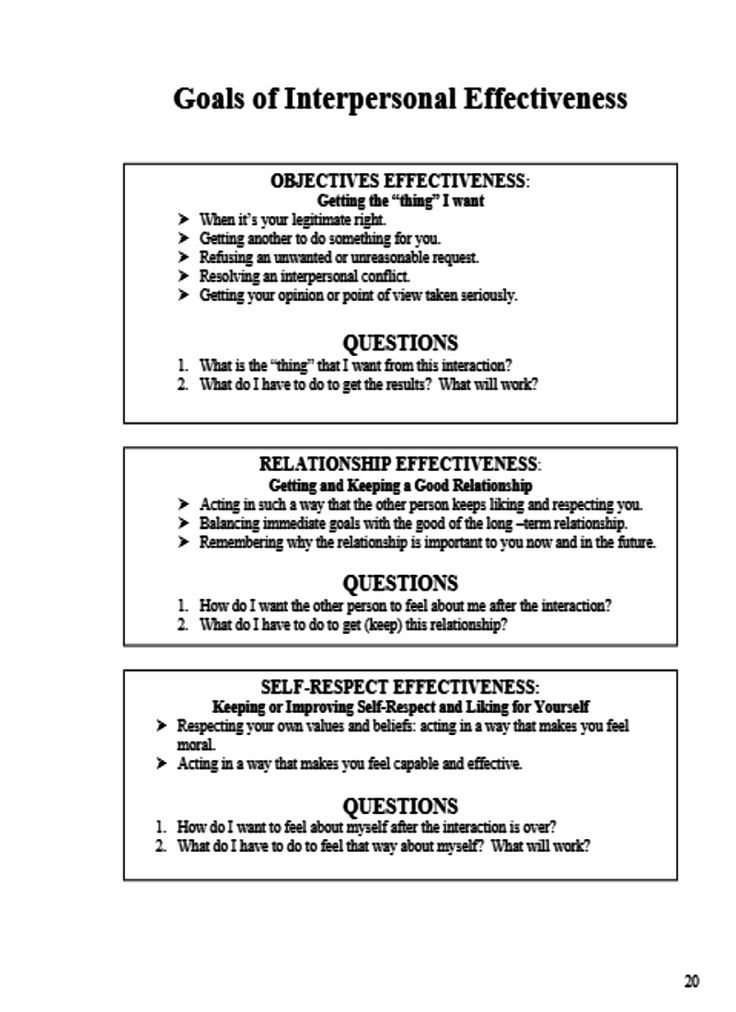
Q: When are the bi-monthly educational webinars?
A: The time for the webinars are announced on the first and 15th of each month. Times vary to help accommodate people in different time zones and countries.
Q: What topics are covered during the webinars?
A: We talk about issues that matter to you today!
That may mean that we discuss building resilience, coping with anxiety, creating healthy romantic relationships, developing lasting friendships, finding meaning in emotional pain, understanding how tiny steps can lead us to greater success at work or school, and becoming more self-compassionate.
My hope is that these ideas will help you to use your DBT skills in a new (and, often, more advanced) way.
Q: May I suggest a topic for the webinars?
A: Of course! Please send me an email at [email protected]. I’d love to hear your ideas.
Q: I’m a therapist. May I subscribe to My Dialectical Life?
A: Yes! Approximately 10% of My Dialectical Life subscribers are graduate students, therapists, physicians, nurse practitioners, or peer support providers.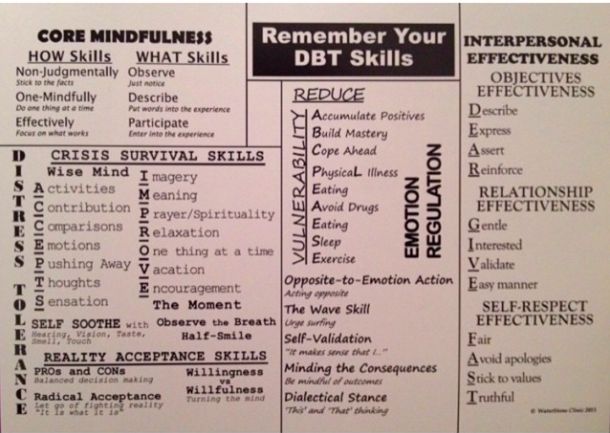
If you are a healthcare professional, your subscription may be tax deductible as a business expense. Please ask your tax advisor for additional information.
Q: What’s a diary card?
A: A diary card is a way to keep track of the skills you are using. You can also use a diary card to assess your progress. Email me at [email protected] for a free diary card you can print and use starting today.
Q: Who subscribes to My Dialectical Life?
A: Anyone who is interested in learning more about DBT or anyone who needs a reminder about the skills they are already familiar with!
I have family members, therapists, graduate students, peer support providers, and people who are struggling with anxiety, depression, EUPD, bipolar disorder, addictions, or anyone else who needs a little extra help managing their thoughts and emotions who subscribe to My Dialectical Life.
Q: What does My Dialectical Life cost?
A: A subscription to MDL is $79 USD a month—less than $3 a day and is billed monthly.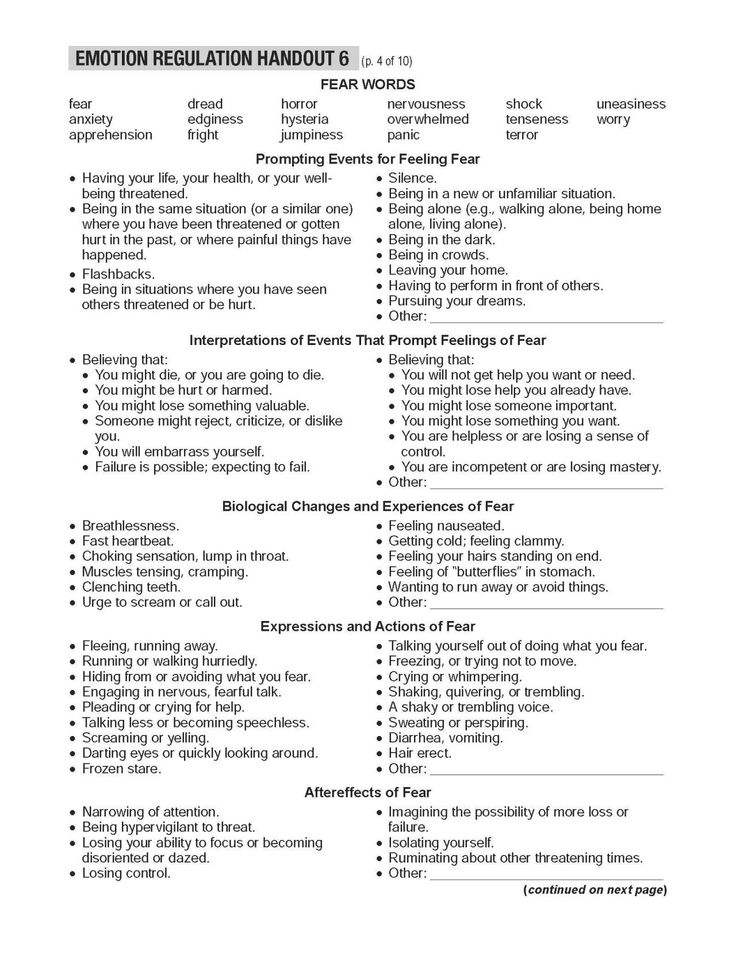 It’s more costly than Netflix but less expensive than a daily coffee habit—with longer-term benefits.
It’s more costly than Netflix but less expensive than a daily coffee habit—with longer-term benefits.
My Dialectical Life is a smart investment you make in yourself.
Q: Can I get a free copy of your book for subscribing?
A: Sure! Just ask me.
Q: I don’t live in the US. How much is $79 USD a month in my currency?
A: This currency calculator should help you to know the current exchange rate for your area of the world.
Q: May I purchase a subscription for my daughter/son/spouse/friend?
A: Of course! Send me an email at [email protected] and I’ll be happy to get them started today.
Q: What time is the daily email sent?
A: Emails go out at 5:00 am CST (-5 GMT) each and every day.
Q: What if I want to unsubscribe?
A: You’re never locked in. If you want to unsubscribe at any time, just send an email and your subscription will be immediately cancelled.
Take Control of Your Emotional Health. Subscribe Today.
Are you ready to start creating a life worth living? Click the button below to get started now
DBT Client Books
| Nikbook Read City Combook Ozon Labyrinth | McKay M., Wood J., Brantley J.S. Dialectical behavior therapy. Training Manual for Mindfulness, Interpersonal Effectiveness, Emotion Regulation, and Resilience This manual provides a step-by-step guide to achieving long-term change through Dialectical Behavior Therapy. After reading this book, you will learn how to identify an emotional outburst in a timely manner, control it and get out of situations without loss. In addition, the authors offer strategies for long-term work on destructive manifestations of feelings and improving relationships with others and with oneself. nine0011 | |
| Nikbook Read City Ozon Labyrinth | Linehan M.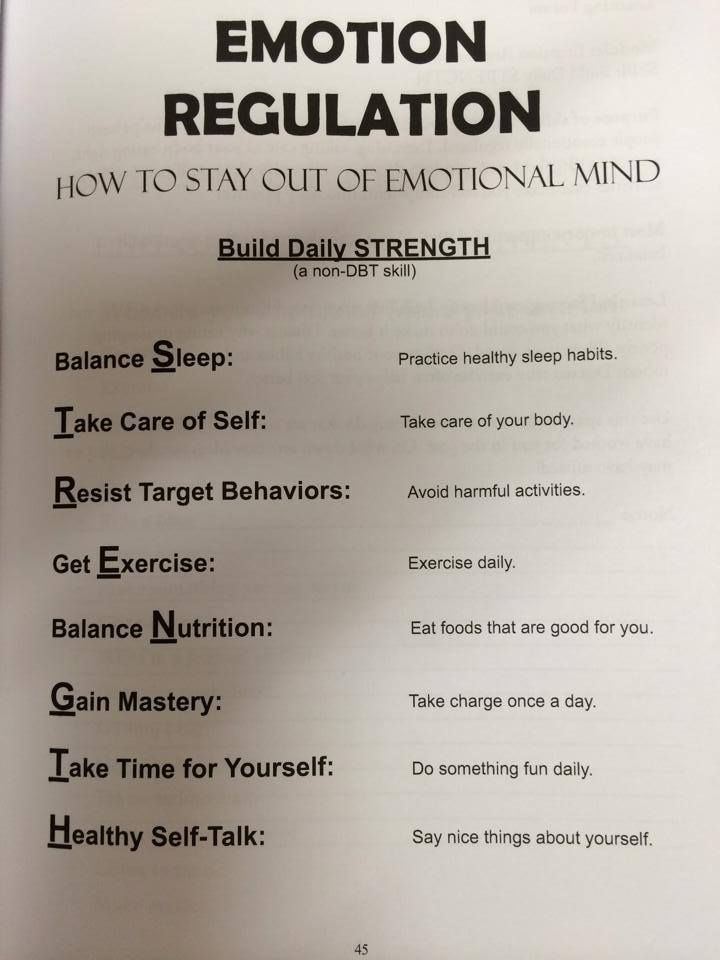 Dialectical Behavioral Therapy: Skills Training. Handouts and worksheets The book contains handouts and workbooks on the topics: - General Skills - Mindfulness Skills - Interpersonal Effectiveness Skills - Emotional Regulation Skills - Stress Management Skills - Mindfulness Skills The book is intended for consultants of dialectical behavioral therapy, psychotherapists, as well as for those who are undergoing DBT skills | |
| NikBook Labyrinth Ozon Book Book MyShop | 9000 9000 9000 9000 9000 9000 9000 9000 9000 9000 9000 9000 9000 9000 9000 9000 9000 9000 9000 9000 9000 9000 9000 9000 9000 9000 9000 9000 9000 9000 9000 9000 9000 9000 emotions. Dialectical Behavioral Therapy Skills for Managing Emotions This book is your guide to managing violent emotions calmly and responsibly using the powerful skills of Dialectical Behavioral Therapy. 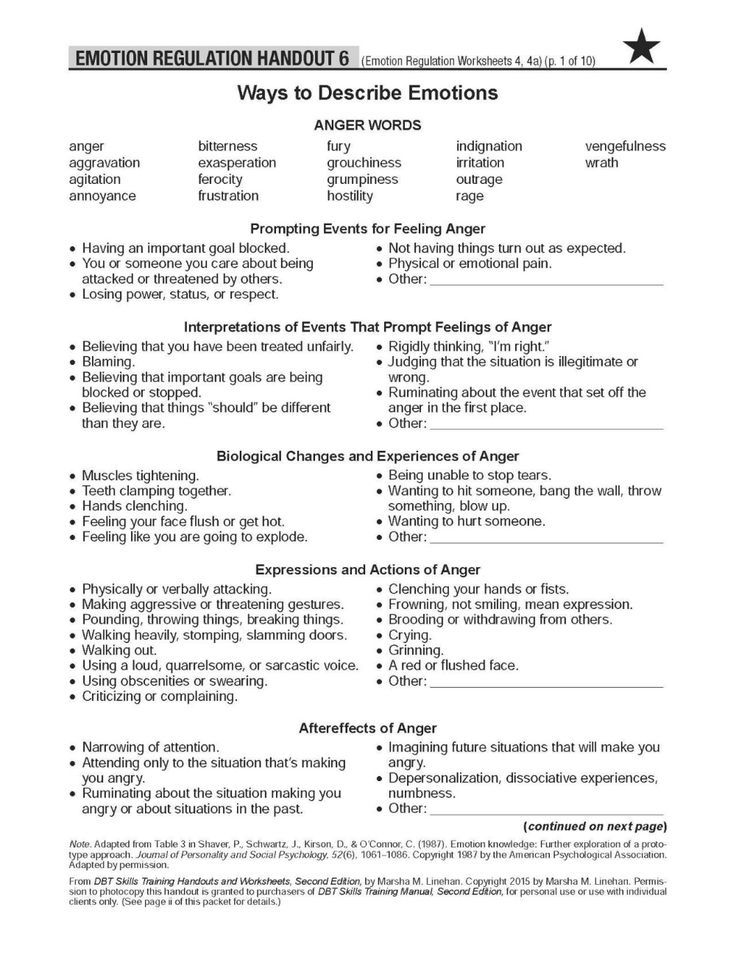 This method combines cognitive behavioral techniques with mindfulness practice to change the way we respond to stressful situations. By practicing these skills, you will be able to stop unnecessary emotional suffering and develop the inner resilience that will help you weather any emotional storm. nine0006 This book will help you: This method combines cognitive behavioral techniques with mindfulness practice to change the way we respond to stressful situations. By practicing these skills, you will be able to stop unnecessary emotional suffering and develop the inner resilience that will help you weather any emotional storm. nine0006 This book will help you: - Improve your life and experience happiness every day - Let go of unwanted worries and fears - Become better by accepting yourself and others - Overcoming a crisis without letting your emotions take over This book is written for everyone who difficult to manage emotions. It can help anyone who has difficulty coping with their anger, sadness, or anxiety, but is no substitute for a professional therapist. | |
| Nikbook Ozon Combook MyShop Read City Labyrinth | Chapman Alexander L., Gratz Kim L., Tull Matthew T. deal with anxiety and its accompanying disorders - anxiety, panic attacks, PTSD symptoms, social anxiety, OCD, and more.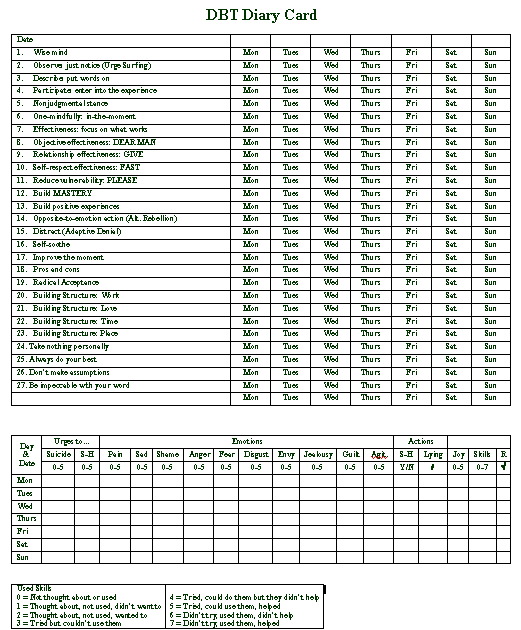 This book briefly describes the causes and symptoms of disorders and talks about DBT skills to solve the problem. Here you will find exercises that will help you identify your anxiety manifestations and their triggers and successfully deal with us. The book is intended for readers seeking to get rid of various manifestations of anxiety, and can be used as a self-help guide. Psychologists and counselors can use the book as part of therapy during sessions or for self-completion. nine0011 This book briefly describes the causes and symptoms of disorders and talks about DBT skills to solve the problem. Here you will find exercises that will help you identify your anxiety manifestations and their triggers and successfully deal with us. The book is intended for readers seeking to get rid of various manifestations of anxiety, and can be used as a self-help guide. Psychologists and counselors can use the book as part of therapy during sessions or for self-completion. nine0011 | |
| Nikbook Combook Ozon MyShop Read City Labyrinth | Reuter K. Dialectical Skills Training PSR Practical Exercises for Coping with Trauma and PTSD Trauma survivors suffering from post-traumatic stress disorder (PTSD) may experience symptoms of anxiety, depression, anger, fear, flashbacks, and even addiction. You are not alone and it is not your fault. Trauma is a normal reaction to distressing and painful events. 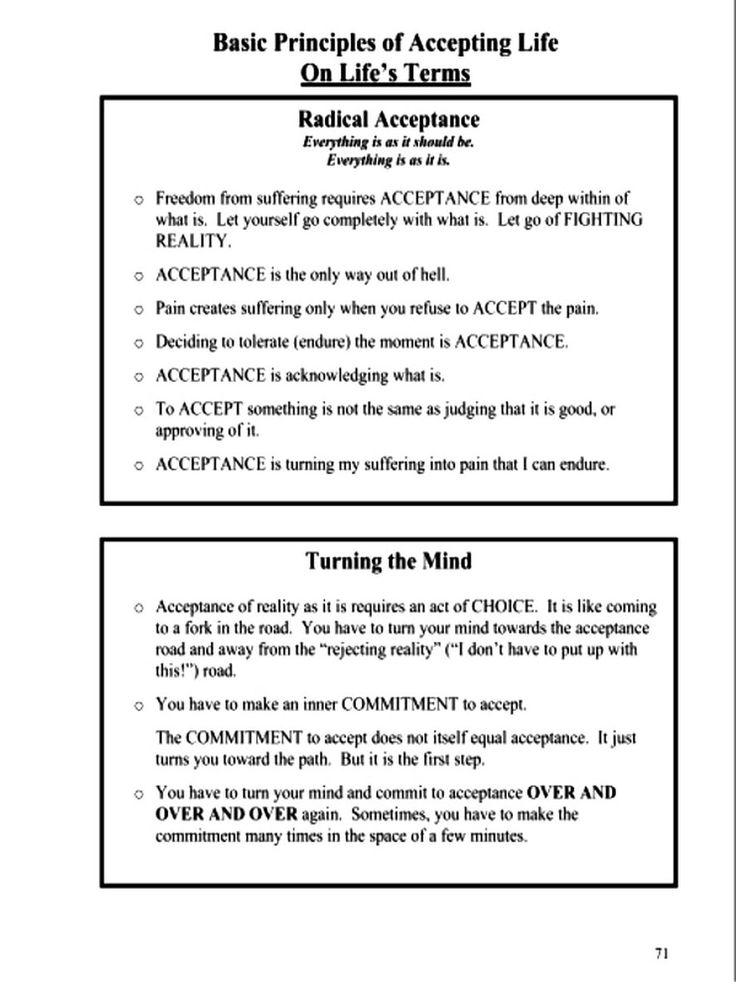 Fortunately, there are real steps you can take to start healing, and this very helpful book will get you on the right track! nine0006 This book provides practical exercises to overcome trauma and PTSD using self-awareness, distress tolerance, emotion regulation, dialectical thinking, and interpersonal effectiveness skills. You will learn to live in the present and identify things and situations that trigger. Fortunately, there are real steps you can take to start healing, and this very helpful book will get you on the right track! nine0006 This book provides practical exercises to overcome trauma and PTSD using self-awareness, distress tolerance, emotion regulation, dialectical thinking, and interpersonal effectiveness skills. You will learn to live in the present and identify things and situations that trigger. It also describes activities that help you manage stress, calm strong emotions, smooth out conflicts, and overcome unhealthy thoughts in which you are stuck. If you are ready to heal from trauma and start living a fulfilling life, then this book will show you the way! nine0011 |
How dialectical behavioral therapy works and how it can be useful for healthy people
Fashionable today "mindfulness", Zen Buddhism and behaviorism at first glance are completely incompatible things. However, all of this is at the heart of Dialectical Behavioral Therapy (DBT), an unusual modification of the well-established cognitive-behavioral therapy.
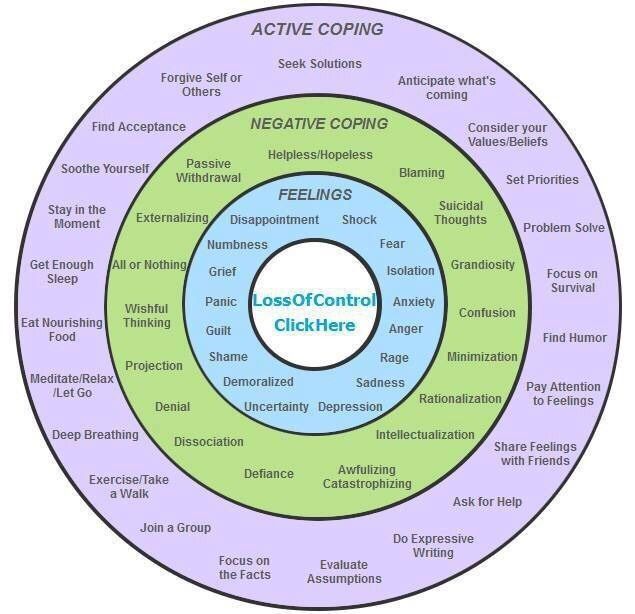 Balancing rational CBT with New Age techniques, the creators of DBT recommend it to those who are prone to self-destructive behavior, lose their identity in romantic relationships, and find it difficult to forgive themselves for past mistakes. T&P understands how appealing to "mindfulness" helps not to kill self-esteem on the way out of the comfort zone and why pleasant emotions need a schedule. nine0114
Balancing rational CBT with New Age techniques, the creators of DBT recommend it to those who are prone to self-destructive behavior, lose their identity in romantic relationships, and find it difficult to forgive themselves for past mistakes. T&P understands how appealing to "mindfulness" helps not to kill self-esteem on the way out of the comfort zone and why pleasant emotions need a schedule. nine0114 Mindfulness instead of "Thinking rationally!"
"Mindfulness" is perhaps the most popular word in the modern dictionary of pop psychology and causes only a smirk in many. However, in the case of DBT, this concept is combined with the cognitive-behavioral approach, one of the most popular and respected branches of psychotherapy in the West with a very strong evidence base.
“It is not the facts and events that upset a person, but the way he looks at them” - this quote from the Stoic philosopher Epictetus can describe the main idea of cognitive-behavioral therapy. Its supporters believe that many mental problems are caused by irrational thinking, due to which a person interprets events and situations in such a way that he experiences more than he could.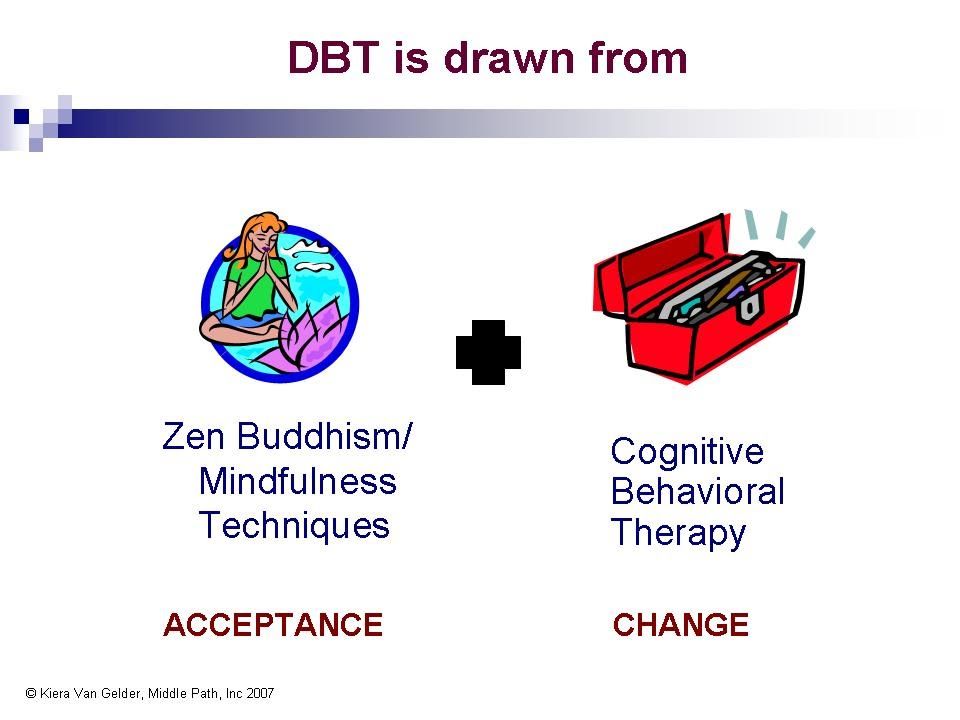 CBT teaches a person to think rationally (cognitive therapy) and reinforce "correct" thought patterns through real-life experiments (behavioral therapy based on behavioral principles). However, the American psychologist Marsha M. Linehan, who suffered from borderline personality disorder (a mental illness characterized by an unstable sense of self, suicidal thoughts, self-injurious behavior, etc.), noticed that CBT is ineffective for patients with this ailment. nine0118
CBT teaches a person to think rationally (cognitive therapy) and reinforce "correct" thought patterns through real-life experiments (behavioral therapy based on behavioral principles). However, the American psychologist Marsha M. Linehan, who suffered from borderline personality disorder (a mental illness characterized by an unstable sense of self, suicidal thoughts, self-injurious behavior, etc.), noticed that CBT is ineffective for patients with this ailment. nine0118
A mind-control-based approach won't help if you're used to thinking, "My thoughts are wrong, my emotions mean nothing, and my actions are wrong, so I'm completely defective"
(Linehan noted that patients with BPD grew up and brought up in a similar environment: their personality was not accepted, they constantly demanded changes and self-control, which, coupled with biological sensitivity, formed extreme reactions).
Cognitive behavioral therapist Yaroslav Isaikin says that Linehan faced recurring problems: clients interrupted sessions, and therapists burned out.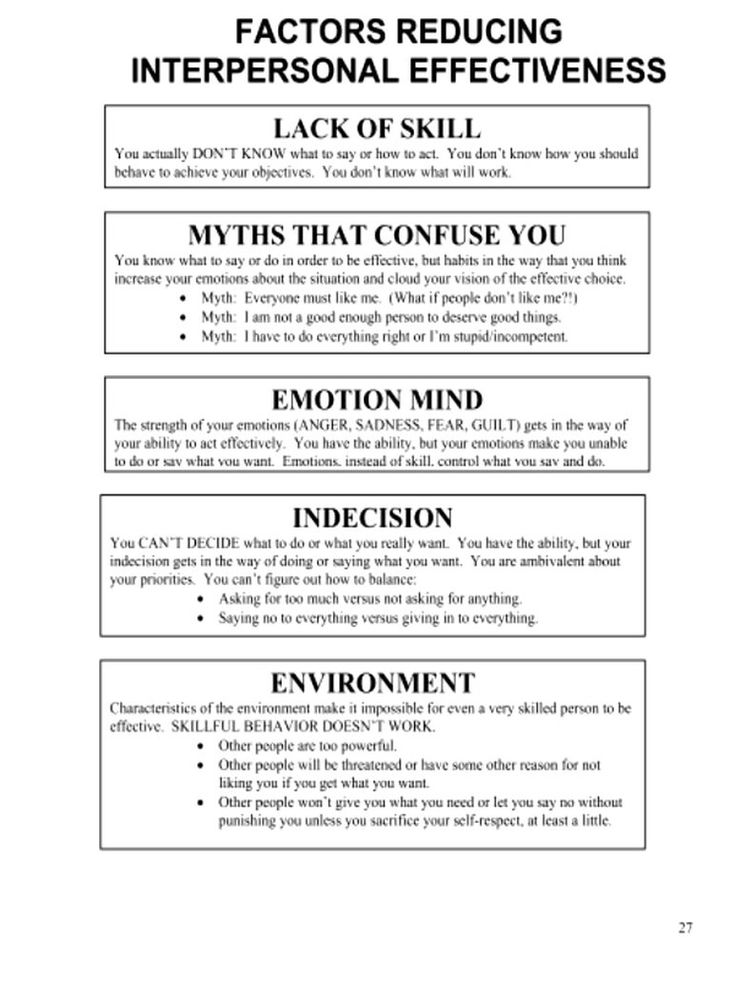 So she decided to balance the change-oriented CBT approach with an acceptance mindset (of herself, her emotions, etc.) and “mindfulness” training. Hence the word "dialectic": DPT combines opposites promising a healing synthesis. nine0118
So she decided to balance the change-oriented CBT approach with an acceptance mindset (of herself, her emotions, etc.) and “mindfulness” training. Hence the word "dialectic": DPT combines opposites promising a healing synthesis. nine0118
Criticism and effectiveness
One of the first randomized clinical trials of DBT was published in 1991. In it, Linehan and her colleagues point to significant improvements in the condition of chronically suicidal women with BPD. However, most of these studies focus on a specific group of people and have a small sample size. The researchers also note that DBT does not work as well with key BPD factors as other types of psychotherapy, with the exception of suicidality. nine0118
Yaroslav Isaikin believes that DBT is effective for a wider range of problems - from working with adolescents and post-traumatic disorder to drug addictions and eating disorders. But it is not suitable for short-term assistance (within 3-5 weeks). If you are interested in working on a specific (not the most time-consuming) query and a quick result, you should pay attention to the classic CBT approach.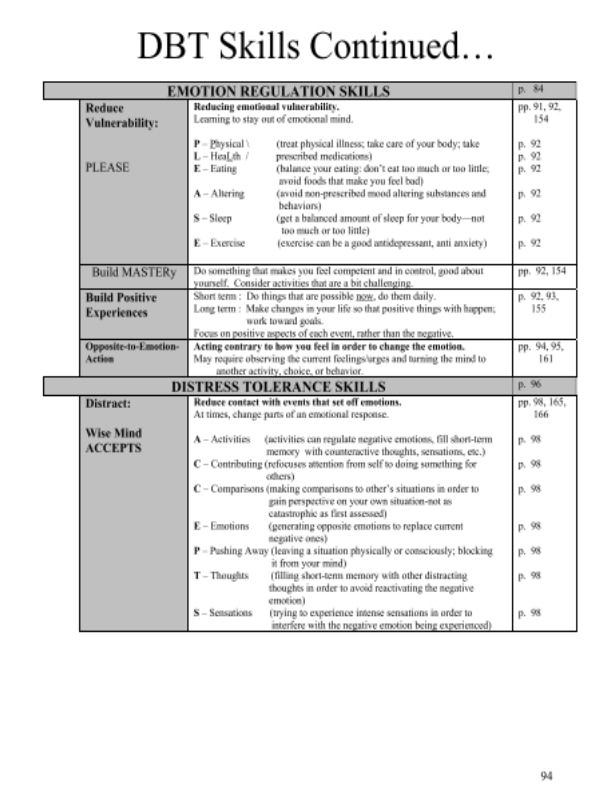
“I went to a private psychotherapist for a year, and despite some improvements, my general condition deteriorated so much that I began to think about suicide,” says Psychologies journalist and columnist Syuyumbike Davlet-Kildeyeva, who has done DBT. - I decided to go to another specialist and, on the advice of a friend, I went to the clinic, where I told about my difficulties: problems with alcohol and psychoactive substances, difficulties in interpersonal relationships, uncontrolled spending of money and compulsive overeating. I didn’t choose DPT myself and didn’t know about this direction at all: I was offered this therapy based on specific complaints.” nine0118
DBT helped her learn to handle stress without resorting to destructive problem solving: “I can drink a couple of glasses of wine once a week, but it's nothing compared to what I used to be. At my last job, a cocktail of a full glass of whiskey and ten grams of cola was named after me, and one of my most popular texts is called "I didn't drink all February.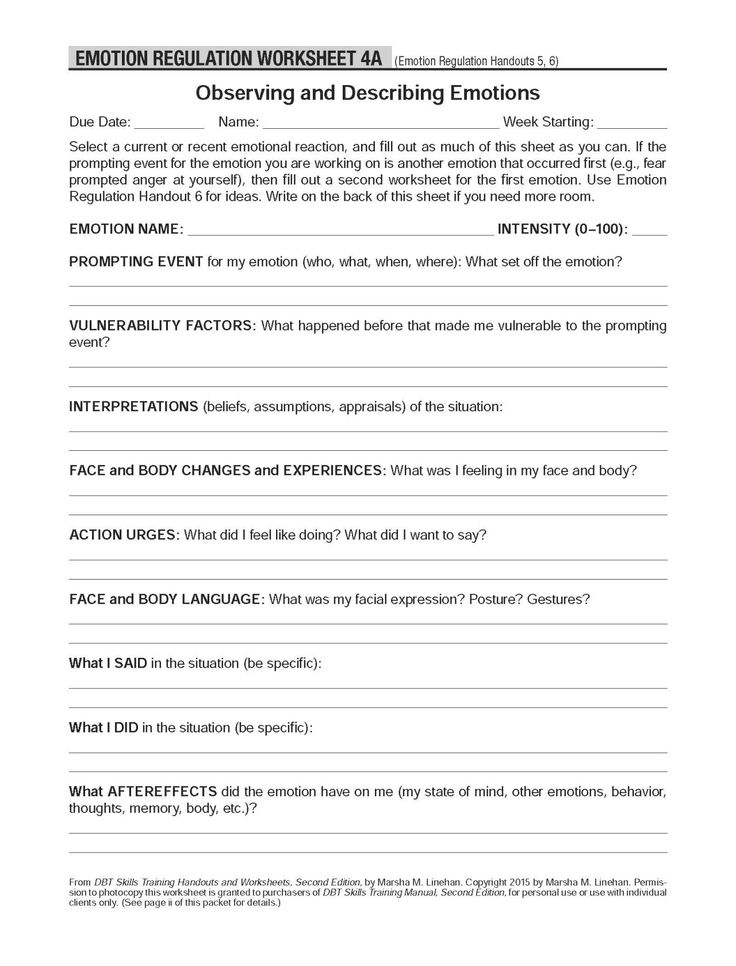 " Now I plan my life for several years ahead and look to the future with a pleasant feeling - before, my horizon was limited to the fog of bad habits and the desire to simply survive. nine0118
" Now I plan my life for several years ahead and look to the future with a pleasant feeling - before, my horizon was limited to the fog of bad habits and the desire to simply survive. nine0118
Zen instead of "Everything is bad!"
Mindfulness, the central skill that DBT seeks to develop, Linehan borrowed from Zen Buddhism. Patients are offered to learn how to meditate, concentrate on breathing and focus on specific objects and sensations. Practicing nonjudgmental presence in the present moment helps you get out of autopilot mode and stop habitual impulsive reactions (in other words, do not lose your temper). As a result, clients learn to consciously experience emotions that they previously wanted to avoid and realize that
even the most unpleasant feelings are not fatal - you don't have to run away from them.
“When describing some events, one should avoid impulsive irrational judgments. Do not say: “I had a hell of a hard week,” but describe facts, events and your attitude towards them.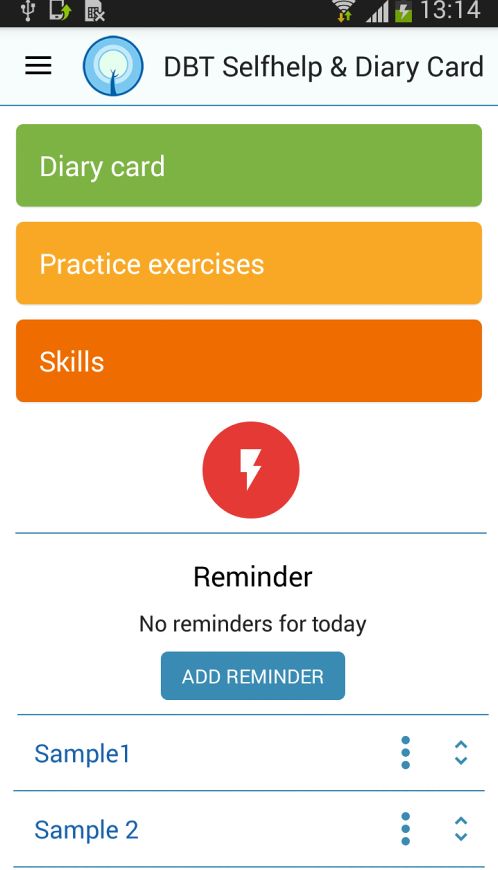 This reduces the degree of emotions, makes you calmer and more objective,” says Davlet-Kildeeva.
This reduces the degree of emotions, makes you calmer and more objective,” says Davlet-Kildeeva.
Not running away from problems, but diverting attention
In the process of developing DPT, Linehan asked herself the question: why some people cannot cope with suffering, while others, even after going through terrible and traumatic events, continue to live fully? The difference is that some people spend a lot of time and energy resisting what can no longer be changed (if you ever could not fall asleep, replaying your shame at a three-year-old party in your head, then you understand what it is about). Others get used to the past, continuing to live on. nine0118
It is this kind of “radical acceptance” that Linehan sees as a skill that helps people bounce back from shocks and crises. Acceptance exercises help you to let the past and present be what they are and spend energy on things that are really controllable and changeable.
Of course, not every situation can be "accepted", especially if something unpleasant is happening here and now and causes inevitable stress in a person. For this case
DBT therapists teach to resist external stimuli: switch attention to pleasant memories, sex fantasies, breathing, mental counting and everything that can distract a person from negative emotions, but does not harm.
This is followed by muscle relaxation, meditation or something individual (for example, listening to music). The main goal is to maintain a stable emotional state.
Plan and have fun
Typically, during DBT, clients keep a diary in which they record their emotions and feelings throughout the day. By carefully analyzing these records, you can identify characteristic triggers and patterns of behavior, pay attention to irrational reactions. And after studying yourself with the help of a diary, think about ways to avoid stressful situations and respond to annoying factors. nine0118
“One of the skills from the emotion regulation group is not to dramatize. I was surprised at how he makes my life easier, - Syuyumbike shares.